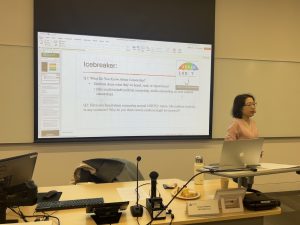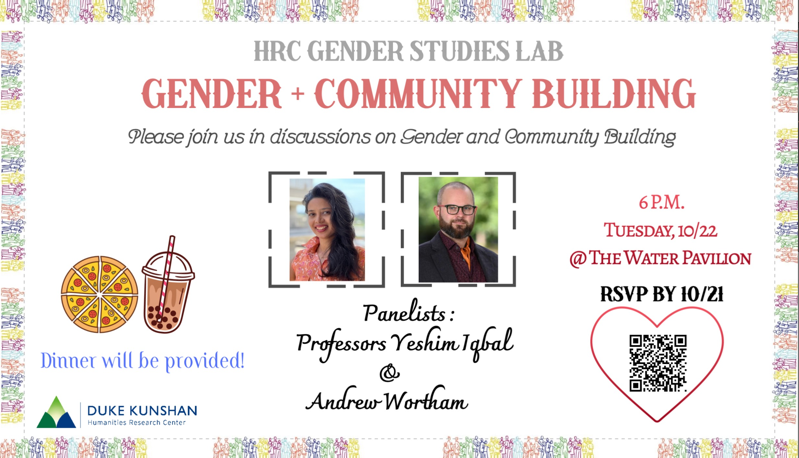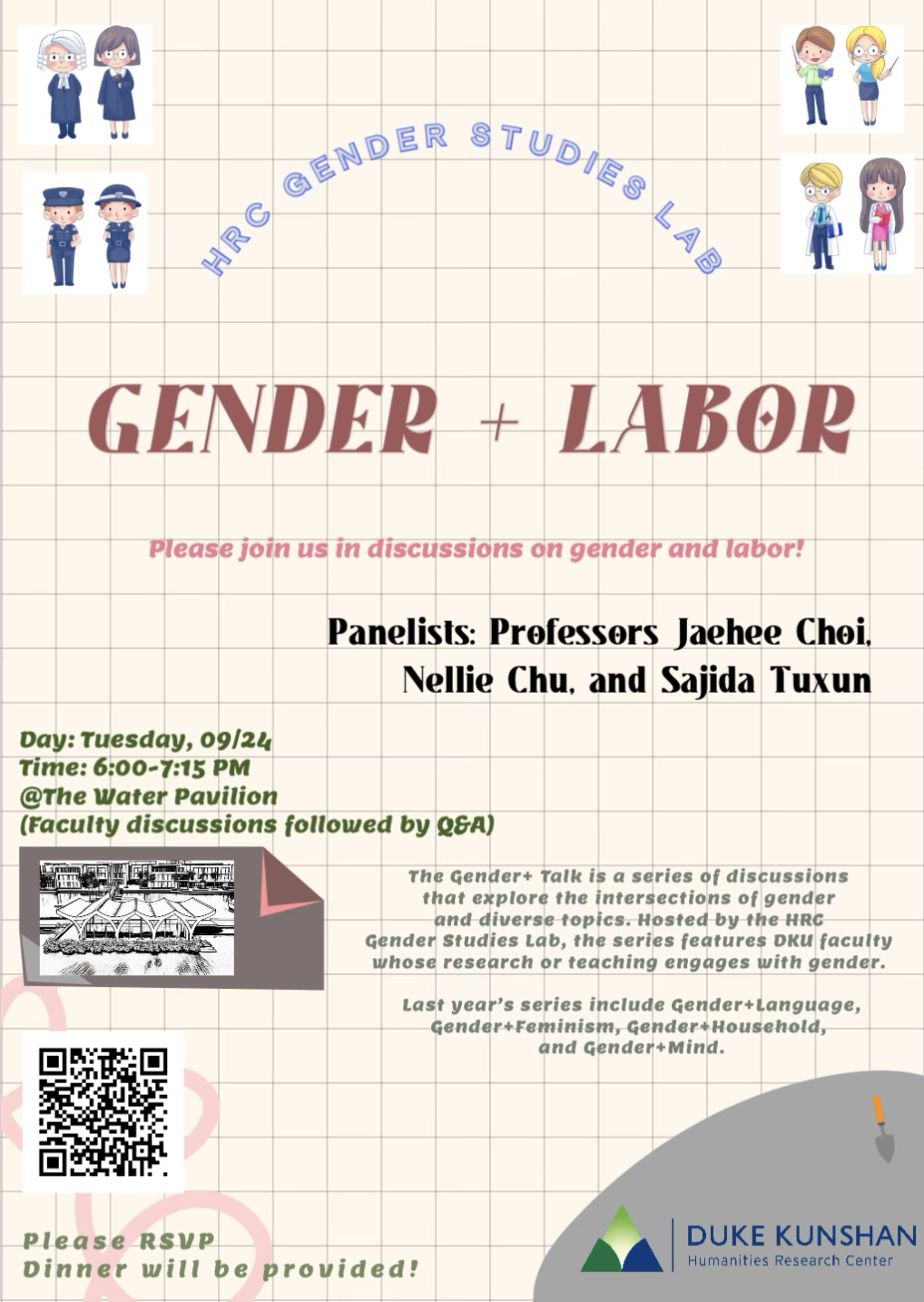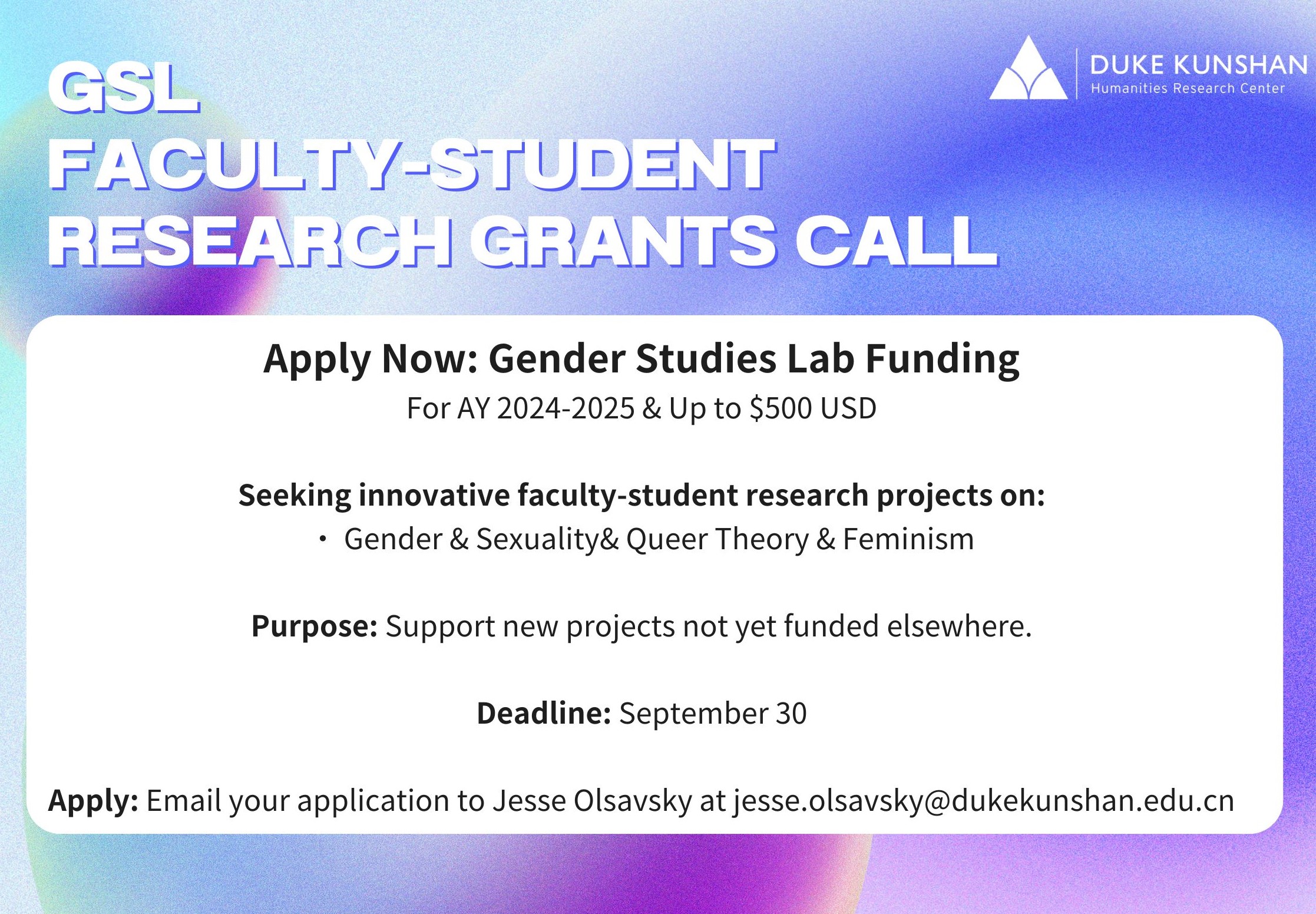
By Yaxuan Wang, Class of 2027
On Friday, February 14, 2025, DKU faculty, staff, and students gathered for our first reading group session, which focused on the article “Censoring ‘Rainbow’ in China” by Jamie J. Zhao. We were excited to welcome both returning participants and new faces, including several first-year students.
The session began with an introduction by Professor Zhenjie Weng, who outlined the article’s main themes. The article discusses the censorship of LGBTQ content in Chinese media. Scenes featuring gay romance and LGBT pride symbols were cut, reflecting China’s complex stance on LGBTQ rights, particularly in its media. Professor Weng also introduced the broader context of LGBTQ censorship in China, including state-enforced regulations and the struggles faced by LGBTQ individuals and communities in the country.
Following the introduction, participants engaged in a discussion on the different media censorship policies across various countries, especially with regard to LGBTQ representation. The conversation emphasized the fluid nature of these policies, particularly in China, where censorship practices have shifted over time yet remain influenced by political and ideological factors.
A key point of discussion was the role of Hunan TV, a Chinese media company that, despite its censorship of certain LGBTQ content, has been known for featuring LGBTQ celebrities on its shows in recent years. For example, the 2018 participation of openly queer artist Adam Lambert in the Chinese singing competition Singer was examined as an interesting case of global LGBTQ representation being commercialized for entertainment purposes, despite the Chinese government’s more conservative stance on LGBTQ issues.
Participants also discussed the cultural tensions surrounding LGBTQ representation in China, particularly in relation to how Chinese media balances commercial interests with political control. The group also broadened the conversation to include public opinions on LGBTQ issues in China, referencing popular Chinese television shows like The Untamed (陈情令) and idol-genre dramas (养成系), which often depict LGBTQ themes but avoid directly addressing LGBTQ identities. These shows provide nuanced portrayals of gender and sexuality, but often understate or erase political and social implications, raising questions about how media in China presents LGBTQ culture in a non-threatening, marketable way.
The session concluded with a lively group activity where participants brainstormed strategies for creating more inclusive spaces in Chinese media and education. The activity allowed participants to reflect on the complexities of LGBTQ representation in China, particularly in light of the political climate and the evolving relationship between global pop culture and state censorship.
The event was organized by Dr. Zhenjie Weng, Assistant Professor of English Language Education, and Dr. Yanan Zhao, Senior Lecturer of English for Academic Purposes, from the Language and Culture Center, and was sponsored by the Humanities Research Center. Student worker Yaxuan Wang also contributed to the success of the event. Our next reading group session will be held on March 28, 2025.


 Date: Thursday, November 7th
Date: Thursday, November 7th

 On September 24, 2024, a thought-provoking panel discussion focusing on the intersection of gender and labor was held by the HRC’s Gender Studies Lab in the Water Pavilion. The panel featured distinguished professors, including Sajida Tuxun, who researches female waitresses and caregivers; Nellie Chu, who studies gender in the context of fast fashion and migrant labor; and Jaehee Choi, who examines social policy and labor market dynamics. Together, they shared insights on the experiences of women in the service industry and the broader implications of social norms and policies. About 40 students and 10 faculty members attended.
On September 24, 2024, a thought-provoking panel discussion focusing on the intersection of gender and labor was held by the HRC’s Gender Studies Lab in the Water Pavilion. The panel featured distinguished professors, including Sajida Tuxun, who researches female waitresses and caregivers; Nellie Chu, who studies gender in the context of fast fashion and migrant labor; and Jaehee Choi, who examines social policy and labor market dynamics. Together, they shared insights on the experiences of women in the service industry and the broader implications of social norms and policies. About 40 students and 10 faculty members attended. Transitioning to a broader context, Professor Jaehee Choi contributed by discussing the “M-shaped curve” labor force participation of Korean and Japanese women, characterized by declines in employment after childbirth and subsequent increases as children grow older. She then discussed a recent South Korean policy to improve the low fertility rate, in which the government provided monetary compensation to households for their childbirth. However, researchers found that parents spent it to invest in their children’s private education rather than basic child-rearing expenses as initially intended. This analysis highlighted the highly competitive Korean society that may deter childbearing among married couples and emphasized the need for systemic changes to support working families.
Transitioning to a broader context, Professor Jaehee Choi contributed by discussing the “M-shaped curve” labor force participation of Korean and Japanese women, characterized by declines in employment after childbirth and subsequent increases as children grow older. She then discussed a recent South Korean policy to improve the low fertility rate, in which the government provided monetary compensation to households for their childbirth. However, researchers found that parents spent it to invest in their children’s private education rather than basic child-rearing expenses as initially intended. This analysis highlighted the highly competitive Korean society that may deter childbearing among married couples and emphasized the need for systemic changes to support working families.

